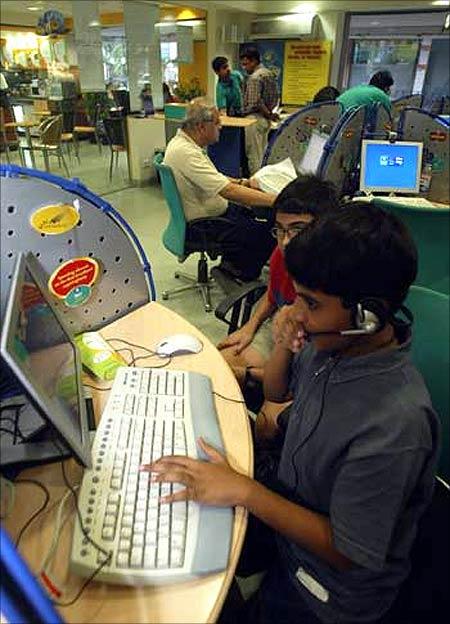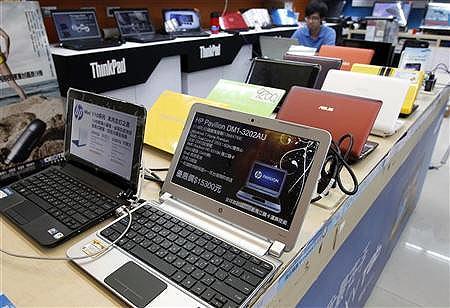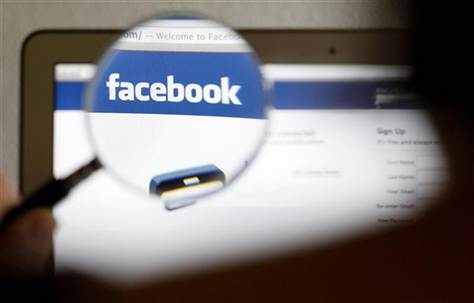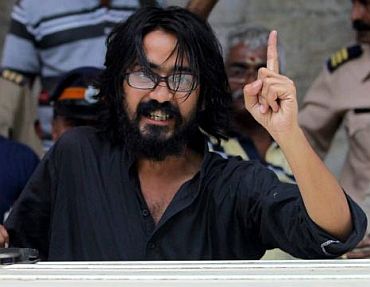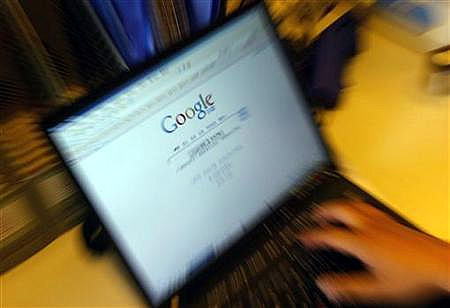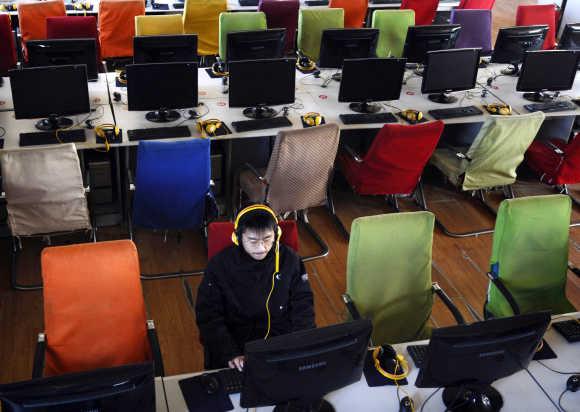 | « Back to article | Print this article |
How to understand our rights in the virtual world
It is necessary that internet users are well informed of the rules of social networking platforms and that those implementing the laws are adequately sensitised regarding the application of the laws to new technologies.
Nearly 70 per cent of urban users access the internet for social networking in India.
Twenty-one-year-old college student Shaheen Dhada and her friend Renu Srinivasan, arrested (then released on bail) last week for voicing their opinion on social networking site Facebook, are just two such users among the 99 million urban Indians using the internet (IMRB-IAMAI data).
Click NEXT to read further. . .
How to understand our rights in the virtual world
World over, hundreds are prosecuted each year for posts, tweets, texts and emails deemed menacing, indecent, offensive or obscene, and the number is growing as our online lives expand.
Recently in the UK, Associated Press reported, "One teenager made offensive comments about a murdered child on Twitter. Another young man wrote on Facebook that British soldiers should 'go to hell.'
A third posted a picture of a burning paper poppy, symbol of remembrance of war dead." All were arrested, two convicted and one jailed.
There's no arguing that cyber laws in India are often misinterpreted by the enforcement agencies.
Click NEXT to read further. . .
How to understand our rights in the virtual world
But with the internet users in India set to touch the 150 million mark by December, from 137 million as of June this year, it has become necessary for users to understand cyber laws.
Dhada and her friend were arrested by the police under Section 66A of the IT Act.
But experts argue that while Section 66A talks about sending any information that is grossly offensive or has menacing character, but the law does not give any guidance as to what is 'grossly offensive' or has 'menacing character.'
Section 66A also comes into conflict with Article 19 of the Constitution of India that guarantees to all citizens the fundamental rights to freedom of speech and expression.
Click NEXT to read further. . .
How to understand our rights in the virtual world
"Given the recent controversy on Facebook activity, it is pertinent that whilst the media of expression may have changed, the laws of the freedom of expression continue to remain the same," says advocate Sajan Poovayya, managing partner, Poovayya & Co.
Earlier this month, Section 66A was also used by the Puducherry police to arrest a man who posted tweets (messages on Twitter) about the son of the finance minister, P Chidambaram, amassing more wealth than Robert Vadra, and also by Mamata Banerjee's government in West Bengal for arresting a professor who forwarded cartoons about her.
Earlier, Section 66 of the IT Act was used to charge cartoonist Aseem Trivedi with "sending messages that are grossly offensive or menacing in character."
Click NEXT to read further. . .
How to understand our rights in the virtual world
Cyber lawyers say Trivedi's cartoons are an exaggerated satire or the result of an overstretched imagination but not criminal.
If his cartoons had used the original national or patriotic symbols with a malicious intention, it would be an offence under Section 2 of the Prevention of Insult to National Honour Act 1971 which punishes "whoever in any publication burns, mutilates, defaces, defiles, disfigures, destroys, tramples upon, or otherwise shows disrespect to or brings into contempt, whether by words, either spoken or written, or by acts, the Indian national flag or the Constitution of India or any part thereof."
But Trivedi's cartoons, reason several experts, do not qualify under this law.
Every day millions of people say a zillion negative things about other people or businesses but only a small fraction of those statements would rise to the level of either slander or libel.
Click NEXT to read further. . .
How to understand our rights in the virtual world
Online users, point experts, need to note that free speech does not give them the licence to defame.
Generally speaking, defamation is a false statement about someone that causes them harm.
It is not limited to live people and can apply to corporations and their products or services as well.
For instance, using Facebook, Twitter, videos, blogs or any site online to malign individual(s) is defamatory and hence punishable.
Poovayya reasons, "It is necessary to ensure that the users are adequately informed of the terms of the platforms preferred by them and, more importantly, that those implementing the law are adequately sensitised regarding the application of the laws to new technology, to ensure that they do not misinterpret the existing laws or wrongly implement the law."
Click NEXT to read further. . .
How to understand our rights in the virtual world
Many sites like Facebook, Twitter, YouTube, blog hosting sites, etc hold the person publishing the content responsible.
So, if you are a blogger who has allowed a photo, statement, comment, etc on a personal blog that implies a fact that is untrue, then you are guilty of implying something that isn't there.
That's not counted under freedom of expression. Pavan Duggal, renowned cyber law expert and advocate, Supreme Court of India emphasises, the moment one uploads videos or blogs on the Internet, they create content and provide network services.
Click NEXT to read further. . .
How to understand our rights in the virtual world
"Thus you must exercise due diligence pertaining to selecting the subject and content of videos as also blogs that you would blog. There are no magical formulas of determining what contents are safe.
"Any content which does not violate any law for the time being in force in India would be considered as safe," says Duggal.
Just jog your memory within the last 48 hours and recollect statements you read online that made you think that maybe the writer shouldn't have said that.
Nonetheless, knowing that online users have a pretty large umbrella of protection is what encourages most of us to create and publish content online but there's an invisible legal line that the internet users need to toe.
